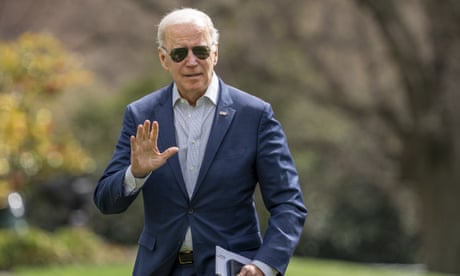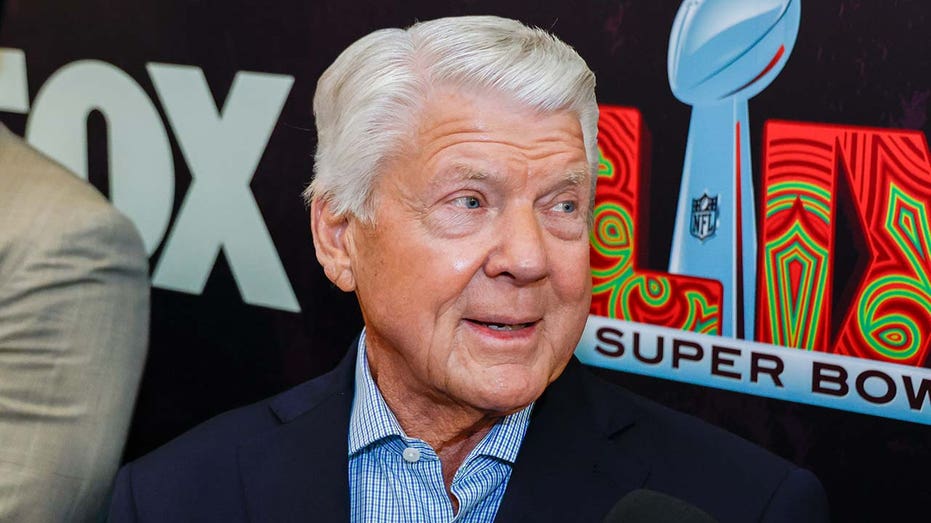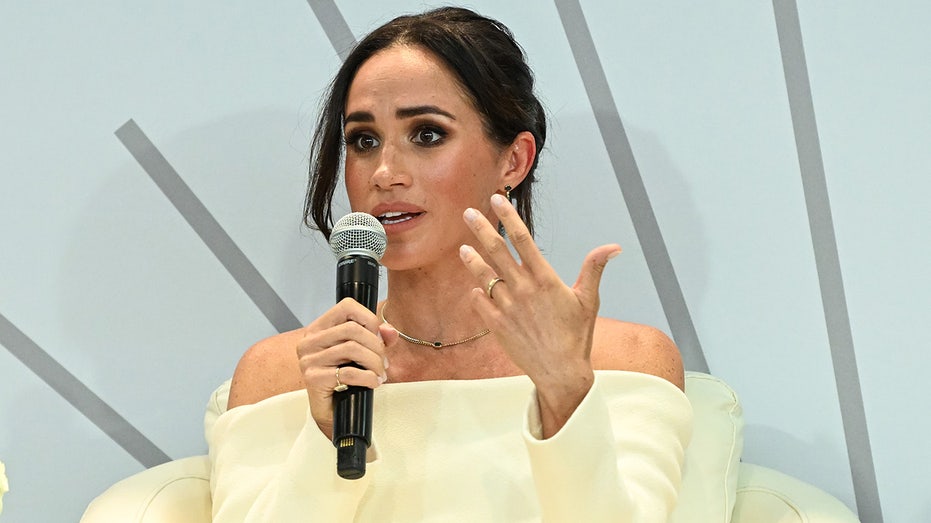- by foxnews
- 04 Mar 2025
Russia threatens to cut ties with US after Biden labels Putin a ‘war criminal’
Russia threatens to cut ties with US after Biden labels Putin a ‘war criminal’
- by theguardian
- 22 Mar 2022
- in news

Russia has warned of a breach of its relations with Washington and summoned the US ambassador in Moscow for an official protest over Joe Biden's labelling of Vladimir Putin as a war criminal, as the US president held talks with European allies on efforts to stop the Russian invasion of Ukraine.
Biden talked to the leaders of the UK, France, Germany and Italy on Monday as part of his effort to maintain a unified front to Moscow, amid signs of cracks within the EU on how far to go in imposing sanctions on Russian oil and gas.
The Russian foreign ministry said it had summoned the US ambassador, John Sullivan, for a meeting over "recent unacceptable statements" by Biden about Putin, days after Biden called Putin a "war criminal" amid the bombardment of Ukrainian cities.
The ministry said in a statement "it was emphasised that remarks such as these by the American president, which are unworthy of a state figure of such a high rank, put Russian-American relations on the verge of a breach".
The US and the Soviet Union maintained diplomatic relations from 1933, throughout the cold war, but relations between Washington and Moscow have become far more volatile since Putin embarked on a campaign of territorial expansion.
Ned Price, the state department spokesperson, derided the Kremlin's complaints about Biden's language in the context of a brutal war.
"It's awfully rich to hear a country speak about 'inappropriate comments' when that same country is engaged in mass slaughter, including strikes and attacks that have resulted in civilian lives [lost], strikes and attacks, barrages that have levelled civilian cities, an invasion of 100,000 plus forces against a largely civilian population," Price said.
The Pentagon on Monday echoed the president's accusations.
"We continue to see indiscriminate attacks against civilians which we believe in many cases is intentional," John Kirby, the defence department spokesperson, said, adding that the US was seeing "clear evidence that Russian forces are committing war crimes."
The UK, France, Albania, Ireland and Norway have also accused Russia of war crimes in Ukraine. The UN's international court of justice has ordered Moscow to halt its invasion, and a prosecutor at the international criminal court has launched a war crimes investigation.
As Ukraine defied a Russian ultimatum to surrender the port city of Mariupol, EU foreign ministers gathered in Brussels to discuss further sanctions against Russia at the start of an intense week of diplomacy.
But after four rounds of sweeping EU sanctions in three weeks, tensions are emerging. The Baltic states and Poland are calling for tougher measures, including an oil embargo, while Germany fears a short-term energy ban would cause joblessness and fuel shortages.
Lithuania's foreign minister, Gabrielius Landsbergis, said it was "unavoidable to start talking about the energy sector" especially oil, which he said was "the biggest revenue to the Russian budget" and "also quite easily replaceable" for the EU.
The EU, which imports 27% of its oil from Russia, has so far not joined the US and UK, in an embargo. Germany has warned that a short-term ban on oil and gas could cause unemployment, poverty and people running out of petrol. Few other western economies are as dependent on Russian energy as Germany: 55% of the natural gas, 52% of the coal and 34% of mineral oil used in the country comes from Russia.
Ukraine's president, Volodymyr Zelenskiy, urged Europe to stop all trade with Russia: "No euros for the occupiers. Close all of your ports to them. Don't export them your goods. Deny energy resources. Push for Russia to leave Ukraine," Zelenskiy said in a video speech on Monday.
Addressing Germany directly, he said: "You have the strength. Europe has the strength."
Arriving at the meeting, the German foreign minister, Annalena Baerbock, declined to answer a question on what could trigger sanctions on Russia's energy sector. She said the images from Ukraine were "simply heartbreaking" and made it "even clearer that the EU, that the global community that believes in a rules-based international order, has to isolate the Russian leadership".
The EU's foreign policy chief, Josep Borrell, said the bloc would continue discussing further sanctions "especially in relation to energy", as he condemned Russia's bombing of civilians in Mariupol, who have endured nearly four weeks under siege. "What is happening in Mariupol is a massive war crime," Borrell said.
Since Russia invaded Ukraine three and a half weeks ago, the EU has agreed unprecedented sanctions against a UN security council member, hitting industries including banking, energy and air transport, as well as imposing asset freezes and travel bans on 685 people and 14 entities linked to Vladimir Putin and his war machinery.
Some diplomats from countries seeking tougher measures fear there is growing sanctions fatigue.
"There is this feeling in the room that we would like to sit down and take a breath, because the first three or even four weeks have been incredibly difficult not to Ukraine but to Europe," Landsbergis said. "It's a very bad message to those who are actually fighting in Ukraine."
Ireland's foreign minister, Simon Coveney, said he also supported a ban on energy exports. He said: "Looking at the extent of the destruction in Ukraine right now, it's very hard to make the case that we shouldn't be moving in on the energy sector, particularly oil and coal."
The Danish foreign minister, Jeppe Kofod, said his country would support the "strongest sanctions that we can agree upon", including a ban on Russian ships docking at EU ports and restrictions on overland transport from Russia and its ally Belarus.
The Kremlin spokesperson, Dmitry Peskov, warned that an oil embargo would have "a very serious negative impact on Europe's energy balance".
Meanwhile, some sanction-cautious countries put more emphasis on closing loopholes in existing measures. "It is easy to write down more sanctions in the newspaper, but there is a world behind every measure," said one EU diplomat, who added that "everything can be on the table, but we must keep the unity".
"It's easy to say we should do oil sanctions or energy sanctions or close the ports but to think it through for a minute, that entails so much," the diplomat said. "To make sure these sanctions can have their true effect and reach their destination is quite a cumbersome and difficult process."
EU leaders are expected to discuss further sanctions with the US president, Joe Biden, later this week. Biden will speak to Emmanuel Macron, Olaf Scholz, Mario Draghi and Boris Johnson on Monday, ahead of a trip to Europe later this week. There he will attend Nato and EU summits in Brussels, before travelling to Poland on Friday, for discussions on "efforts to support Ukraine and impose severe and unprecedented costs on Russia for its invasion", according to a White House statement.
The western alliance is also expected to discuss how to stop Russia circumventing sanctions via China and other countries. Kofod said the EU was discussing how to use its diplomatic weight to ensure countries in the rest of the world, "will choose the right side of history", namely, he specified, condemning Putin's war and signing up for the political isolation of Russia.
Ministers will also sign off an EU security and foreign policy strategy for the next decade, which was drafted months ago, but heavily rewritten after the Russian invasion. Ukraine's defence minister, Oleksii Reznikov, will brief via video link a separate meeting of EU defence ministers.
- by travelandtourworld
- descember 09, 2016
Rome's Exclusive Nightlife The Ultimate Guide to Luxury Prestige and VIP Experiences
Rome, the Eternal City, is celebrated for its awe-inspiring architecture, deep-rooted history, and electrifying nightlife. As twilight descends over the Colosseum and the city’s cobblestone streets begin to pulse with energy, discerning travelers and locals alike seek out the most exclusive experiences the city has to offer. From high-end rooftop lounges and private clubs to bespoke luxury gatherings, Rome’s nightlife is a refined blend of sophistication and indulgence.
read more


